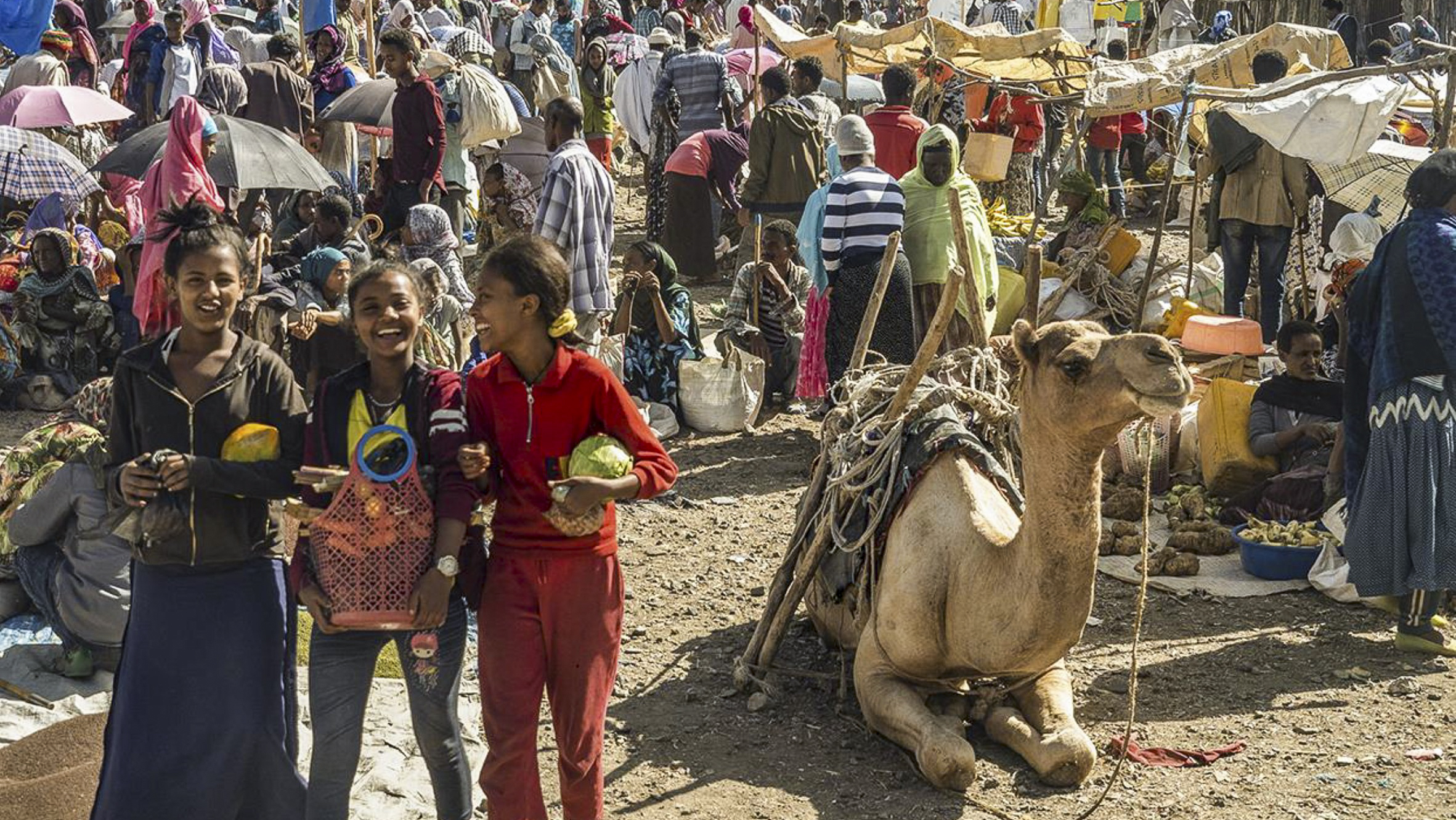Ethiopie
Programme vision
To strengthen local and national capacities for resilient conflict transformation, inclusive governance and responsive development.


Contexte
Ethiopia’s security situation has continued to have significant social impacts, with millions of citizens displaced, thousands killed, and growing economic challenges. The current circumstances are threatening the prospects of sustainable peace and democratic gains.
Interpeace has signed a memorandum of understanding with the Ministry of Peace to support Ethiopia’s national peacebuilding strategy. Within that framework, Interpeace developed and published in 2023 the pilot Ethiopia Peace Index, a tool to establish evidence and analyse the state of peace and resilience. During the year, Interpeace also continued to support police reform, fostering trust and collaboration between civilians and authorities to enhance community safety and contribute to everyday experiences of peace.
Restoring trust between police and communities in Ethiopia
Before the development of a trust-building programme between communities and the police in four Woredas in Addis Ababa, crime rates were high. Through a partnership between the Ethiopian Police University and Interpeace, the implementation of a community security approach led to improved trust between the police and the community, resulting in notable declines in crime rates and increases in people’s sense of safety.
Following the programme’s implementation, community members feel empowered to influence security policing in their Woreda. The initiative has instilled a sense of unity and optimism about the future of security. Some 81% of the community members’ responses reflected this positive outcome.
Personal journey
Zenebe (pseudonym), a married father of four children and a resident of one of the Woreda, witnessed the transformative impact of the trust-building dialogues organised by Interpeace. These dialogues provide platforms for community representatives and police officers to discuss local peace, develop problem-solving strategies, and implement capacity-building initiatives.
Reflecting on the past, Zenebe recalls the historical marginalisation of community members in police operations. This led to a disconnect between community priorities and police actions, breeding mistrust and suspicion. The trust-building programme marked a shift towards collaboration, aiming to involve residents in shaping police services. “Most of the programme activities were new for all of us. The police in this country did not have the culture to genuinely engage community groups to take an active role in setting priorities and service needs,” Zenebe recalls.
Zenebe also recalls how the programme introduced new practices, such as engaging community groups in decision-making processes, fostering inclusivity, and taking proactive measures to enhance community safety. Initiatives like the shay-bunny forums, where residents would hold weekly discussions over a cup of tea or coffee, have strengthened social bonds and facilitated dispute resolution and resource mobilisation.
While celebrating achievement, Zenebe emphasises the importance of sustained engagement from stakeholders to ensure long-term success: “I am convinced that community representatives and police officers require ongoing support to maintain programme outcomes.”
Zenebe's journey reflects a positive transformation in police–community relations. As the community looks to the future, expanding the trust-building programme to all regions of Ethiopia remains essential for sustained progress and peacebuilding efforts.